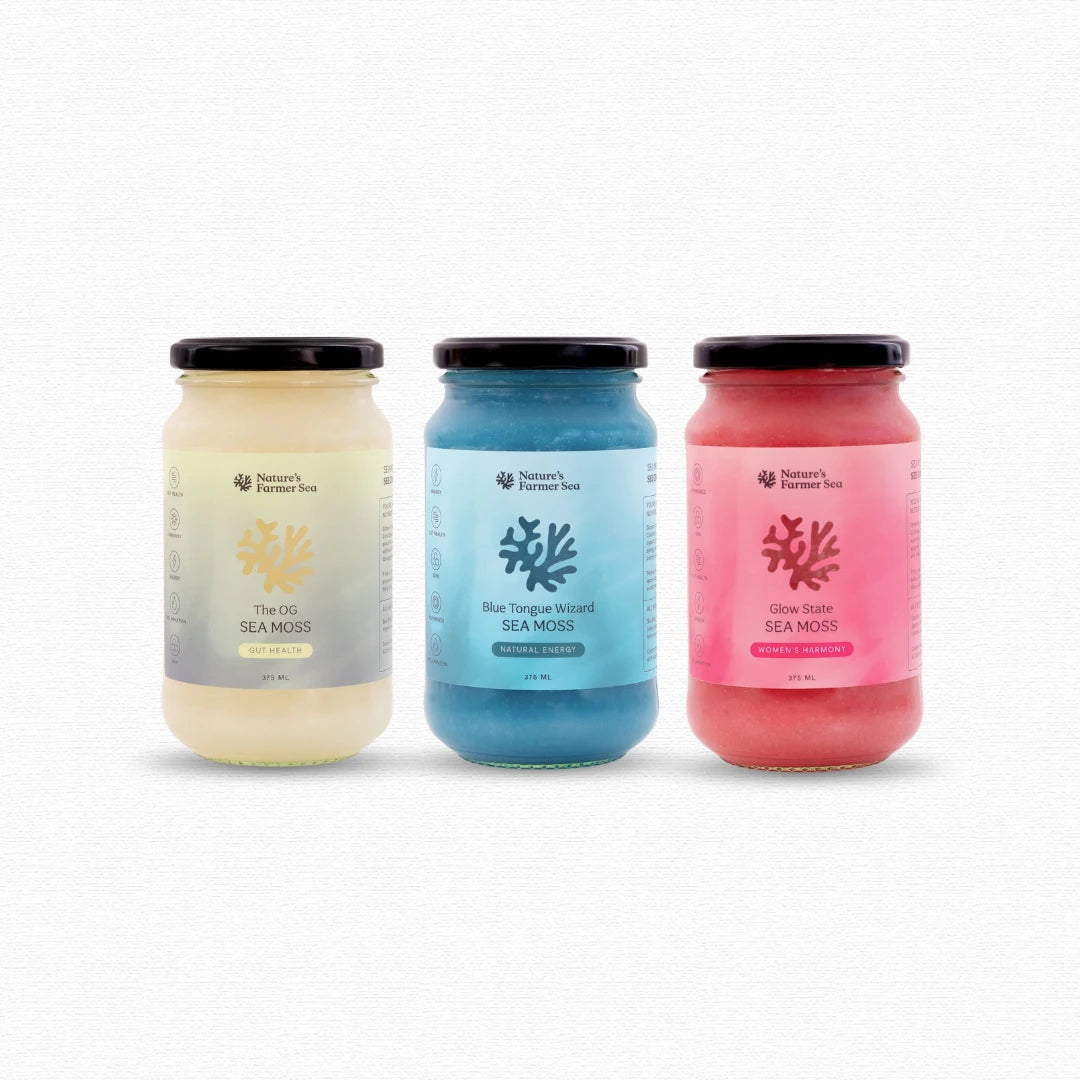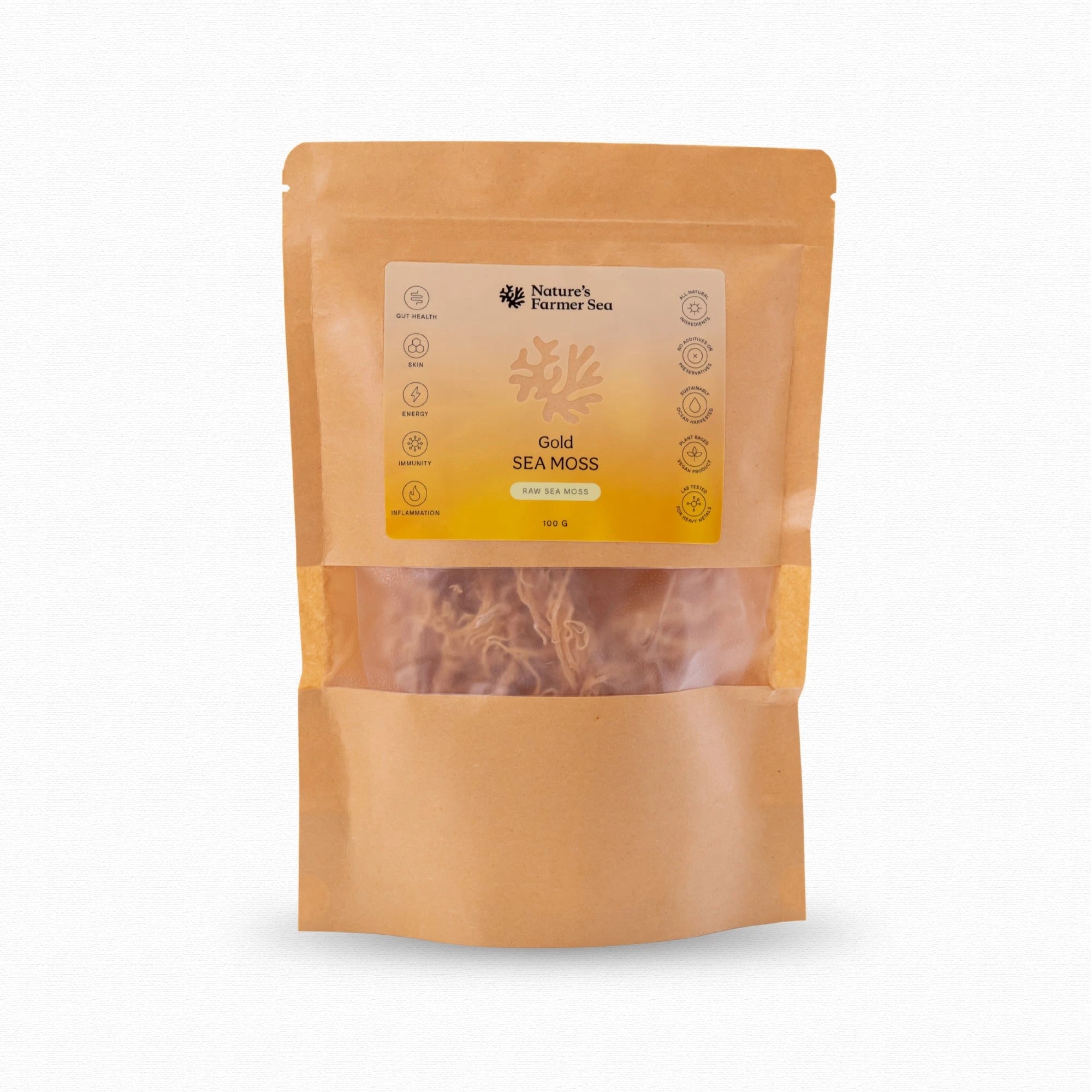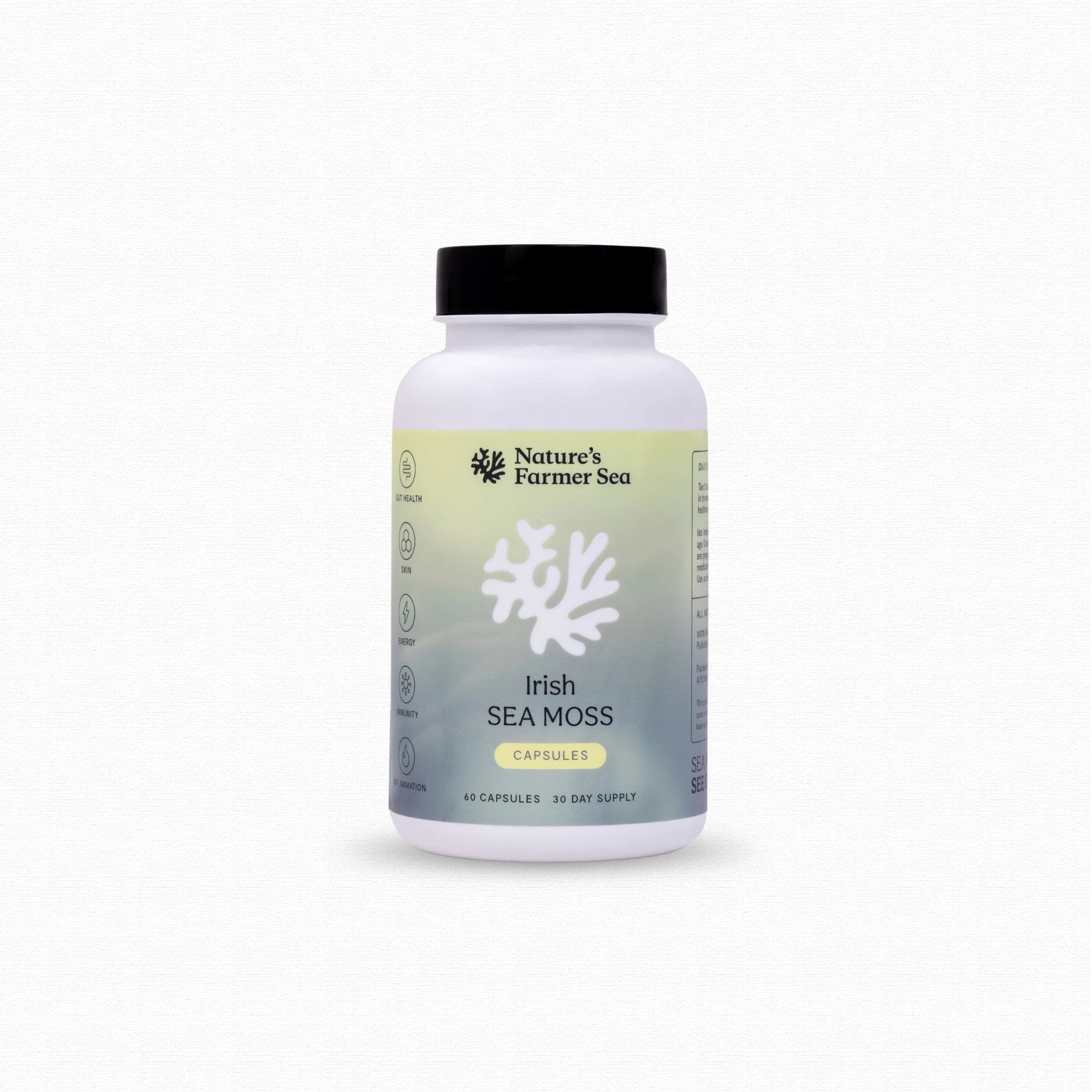By Gene Schesser
Women’s bodies are always shifting - through cycles, stress, seasons of change. And with that,comes the need for nutrients and herbal allies that not only respond to these shifts but also support our foundational health. The new Glow State blend from Nature’s Farmer Sea does exactly that, combining the multi-mineral nourishment of sea moss with magnesium, vitamin C and hormone-supportive herbs like shatavari (Asparagus racemosus) and calendula (Calendula officinalis).
Magnesium for Mood, Hormones & Muscle Tension
Magnesium is involved in over 300 enzymatic reactions in the body and plays a particularly powerful role in the hypothalamic-pituitary-adrenal (HPA) axis, our central stress response system. Under chronic stress, magnesium is rapidly excreted from the body, leading to deficiency—and deficiency then exacerbates the stress response. This vicious cycle has direct implications for women’s health, particularly PMS, anxiety, fatigue, and cramping.
Mechanisms of Action:
Neurological: Magnesium regulates NMDA receptors and supports GABAergic activity.
promoting calm and reducing excitatory neurotransmitters linked to anxiety and stress.
Muscular: It reduces uterine muscle tension and prostaglandin activity, helping to ease
menstrual cramps.
Endocrine: Supports cortisol modulation and contributes to estrogen detoxification via
sulfation and methylation pathways.
A 2010 study found that magnesium supplementation significantly reduced PMS symptoms, particularly mood-related ones (Fathizadeh et al., 2010).
Vitamin C for Adrenals, Immunity & Progesterone:
Vitamin C is essential in the synthesis of steroid hormones, particularly progesterone, which helps counterbalance oestrogen and supports mood stability, sleep, and a healthy luteal phase. It’s also vital for adrenal resilience, especially when navigating chronic stress or burnout.
Mechanisms of Action:
Adrenal Support: Vitamin C is highly concentrated in the adrenal glands and is necessary for the production of cortisol in response to stress.
Antioxidant Role: Helps reduce oxidative damage from inflammation and hormonal imbalance.
Collagen Formation: Supports skin and connective tissue, which can become more sensitive during hormonal fluctuations.
Shatavari: Adaptogenic and Oestrogen Modulating
Shatavari (Asparagus racemosus) is a classical Ayurvedic herb revered for supporting female reproductive health at all life stages. It contains steroidal saponins such as shatavarins I–IV, which exert phytoestrogenic activity.
Mechanisms of action:
Mimics oestrogenic effects by binding to oestrogen receptors, gently modulating
imbalances, whether in estrogen excess or deficiency.
Enhances luteinising hormone (LH) and follicle-stimulating hormone (FSH) regulation,
supporting regular ovulation. Acts as an adaptogen, supporting the HPA axis and reducing cortisol’s suppressive effects on the reproductive system.
Calendula: Anti-Inflammatory and Lymph-Supportive
Calendula (Calendula officinalis), rich in flavonoids, triterpenoids, and carotenoids, it’s an
anti-inflammatory that supports detoxification, gut repair, and lymphatic drainage—all of
which are critical for hormonal balance.
Mechanism of Action:
Inhibits the COX-2 pathway, reducing inflammatory prostaglandins associated with cramping and PMS.
Supports gut lining integrity, improving oestrogen clearance and minimising reabsorption
of metabolised hormones (via β-glucuronidase inhibition).
Aids in lymphatic drainage, supporting hormone detox through the skin, gut, and liver.
How Sea Moss & Herbal Allies Support Women’s Health 2
No supplement can replace the foundation of a nourishing lifestyle.
For best results, pair Glow State with wholefood meals, plenty of water, quality rest, gentle movement, and time for connection. And if you're navigating persistent hormonal symptoms, cycle challenges, or signs of burnout, it’s always worth working with a practitioner to explore what’s going on beneath the surface.
References:
Ebrahimi, E., Motlagh, S., Nemati, S., & Tavakoli, Z. (2012). Effects of Magnesium and Vitamin
B6 on the Severity of Premenstrual Syndrome Symptoms. Journal of Caring Sciences, 2012(4),
183–189. https://doi.org/10.5681/jcs.2012.026
Henmi, H., Endo, T., Kitajima, Y ., Manase, K., Hata, H., & Kudo, R. (2003). Effects of ascorbic
acid supplementation on serum progesterone levels in patients with a luteal phase
defect. Fertility and Sterility, 80(2), 459–461. https://doi.org/10.1016/s0015-0282(03)00657-5
Majumdar, S., Gupta, S., Prajapati, S. K., & Krishnamurthy, S. (2021). Neuro-nutraceutical
potential of Asparagus racemosus: A review. Neurochemistry International, 145, 105013.
https://doi.org/10.1016/j.neuint.2021.105013
Ovinuchi Ejiohuo, Samson Folami, & Abdulkadir Yusif Maigoro. (2024). Calendula in modern
medicine: Advancements in wound healing and drug delivery applications. European Journal of
Medicinal Chemistry Reports, 12, 100199–100199. https://doi.org/10.1016/j.ejmcr.2024.100199





